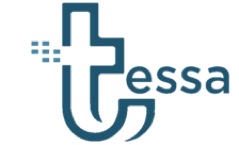TESSA program receives new $1 million funding to expand domestic violence support services
October 28, 2019 • Uncategorized
 Across the U.S. and at home in North Texas, the rates of domestic violence and abuse are as steady as the beat of a heart, the tick of a clock.
Across the U.S. and at home in North Texas, the rates of domestic violence and abuse are as steady as the beat of a heart, the tick of a clock.
Every minute across the country, approximately 20 people are physically abused by an intimate partner.
Nearly three out of four Americans, in fact, personally know someone who is or has been a victim of domestic violence.
UNT Health Science Center researchers and North Texas-area community partners are working hard to help local domestic violence victims and are now expanding services to include a focus on HIV transmission, thanks to $1 million in new funding from the U.S. Department of Health and Human Services’ (USDHHS) Office on Women’s Health.
The UNTHSC-led TESSA (Technology Enhanced Screening and Supportive Assistance) program was established in 2015 with USDHHS funding and is now also supported by the Texas Governor’s Office, Criminal Justice Division.
TESSA is designed to give a voice to victims of interpersonal violence and help them feel physically and emotionally safe, noticed and listened to.
The program brings area health providers, community resources, agencies and advocate services together to screen for, identify and address these individuals’ physical and emotional needs.
“Interpersonal violence affects not just a person’s physical and emotional safety but also long-term health,” said Emily Spence, PhD, UNTHSC School of Public Health Associate Dean for Community Engagement and Health Equity and Principal Investigator on the TESSA project.
“Interpersonal violence has been linked to higher rates of depression and suicidal behavior, as well as a 50-70% higher likelihood of future chronic health conditions like asthma, high blood pressure, heart disease, gynecological issues, gastrointestinal disorders, behavioral health illnesses and stress-related conditions,” Dr. Spence said.
Victims of interpersonal violence are also at increased risk of HIV infection, Dr. Spence said, due to forced sexual encounters, barriers to negotiating safer sex strategies and the sexual risk behaviors of abusive partners.
The new grant funding will help healthcare providers in reaching victims at key points in time, through primary care settings and emergency medical visits, to add HIV prevention and care services to the other assistance programs currently provided through the TESSA network.
TESSA partners include the UNT Health system and JPS Health Network, with health advocates at One Safe Place and Safe Haven providing trauma support services that include safety planning, health coaching, health navigation assistance, motivational interviewing and stress management programs. These community locations also link to resources for interim housing, children’s services, legal counseling, work training and job placement programs.
Healthcare utilization for interpersonal violence victims is 92% higher than for other patients, underscoring the important role of health providers in this collaborative effort.
Additionally, statistics show that individuals who talk to their medical provider about abuse are four times more likely to use an intervention and are 2.6 times more likely to leave an abusive relationship.
“Being able to add HIV-related services to this domestic violence safety network in our community is an important next step for the TESSA program and for those who need assistance,” Dr. Spence said. “TESSA is able to expand and serve more people in more ways because of the continued support of USDHHS, the Texas Governor’s Office and those working locally on this important public health concern that impacts so many lives.”
Special recognition goes to all those who helped achieve the program’s latest grant funding, including Co-Investigators Erika Thompson, PhD, and Jessica Grace, LMSW, from the UNTHSC School of Public Health, and Manza Agovi, PhD, and MaryAnn Contreras, RN, from JPS Health Network.

Social media